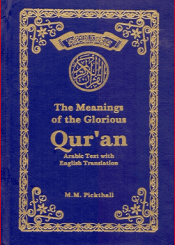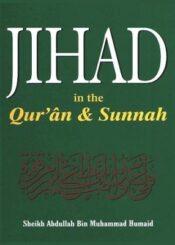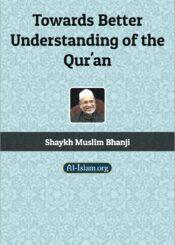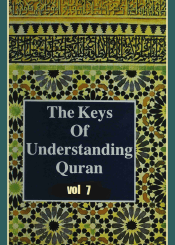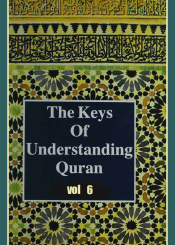The Holy Quran - Etiquettes of Quran
The Holy Quran - Etiquettes of Quran
1 Vote
532 View
Written By: Mulla Mujahidali Sheriff The Holy Quran is the book of Allah (SWT). He (SWT) has sent it for the guidance of mankind. Therefore, it should not be considered as an ordinary book and treated in that manner. In order to accord the Quran with highest degree of respect and to derive maximum benefits from it, Islam has laid down some etiquette that has to be observed while handling and using this divine book. One who intends to open the Holy Quran and read from its verses should observe the following rules: TAHARAH (PURITY) This is indeed a noble Quran, in a guarded book. No one touches it except the pure ones. Gradually sent down from the Lord of the worlds. (56:77-80) There are different interpretations given by the commentators on the term Mutahharoon (Pure ones). However, it also refers to those who are in state of purity whilst touching the Quran. The Scholars of Islam have emphasised that one should not touch the Holy Quran with any part of one's body without Wudhoo (Ablution). The Late Ayatullah Seyyid Abul-Qasim al-Khoei has stated in his Risalah: It is unlawful to touch the writing of the Holy Quran with any part of one's body without performing ablutions. However, there is no harm in touching, without performing ablutions, the translation of the Holy Quran in any language. Further on, he also adds: It is unlawful, on the basis of obligatory precaution, to touch without ablutions, the Name of Allah or His special attributes, in whichever language they may been written. This clearly shows that touching the Arabic text of Quran without ablution is not permitted. However, one may touch the translation of the Quran in any other language without ablution BUT be careful about not touching the Name of Allah and His special attributes. The rulings of Ayatullah Seyyid Ali al-Seestani in this regard are also similar (refer Islamic Laws). Cleaning of the mouth with Miswak (a small stick the tip of which is softened by chewing used for cleaning and polishing the teeth) before the recitation of Quran is also highly recommended. The Holy Prophet (saww) said, Clean the path of Quran. Somebody asked, What is the path of Quran? The Holy Prophet (saww) said, Your mouths. When asked, With what? The Holy Prophet (saww) replied, With Miswak. (Bihar al-Anwaar) ISTIADHA & BASMALA We are discussing the rules that have to be observed whilst reciting the Holy Quran. The first rule is of Taharah (Purity), as discussed above. The second rule is of Istiadha & Basmala. Istiadha means seeking refuge in Allah (SWT) from Shaytan (Satan) and Basmala means to begin in the Name of Allah (SWT). When you recite the Quran, seek the protection of Allah against the outcast Shaytan. Indeed he does not have authority over those who have faith and put their trust in their Lord . (16:98-99) Imam Jaffar as-Sadiq (as) has said, Shut the doors of disobedience (to God) by seeking refuge (in Allah) and open the doors of obedience by beginning in the Name of Allah. (Bihar al-Anwaar) A person asked Imam as-Sadiq (as), Should we seek refuge in Allah from the accursed Shaytan at the opening of any chapter (of the Quran)?Imam (as) replied, Yes!(Bihar al-Anwaar) Refuge in Allah (SWT) can be sought by recitation of: A-˜OODHU BILLAHI MINASH-SHAYTANIR-RAJEEM (I seek refuge in Allah from the accursed Shaytan). After seeking refuge in Allah (SWT), the recitor of Quran should then begin the recitation in the Name of Allah by saying: BISMILLAHIR RAHMANIR RAHEEM (I begin in the Name of Allah, the Beneficent, the Merciful). BISMILLAH is part of every Surah (Chapter) of the Holy Quran except for the 9th Chapter known as Surah al-Tawbah. Some Muslims believe that it is not part of every Surah except for Al-Fatiha. According to the teachings of Ahlul-Bayt (as), BISMILLAH is part of every Surah except al-Tawbah, and there are some traditions in this regard. Ayatullah Naser Makarem Shirazi in his commentaryPayaam-e-Quran, has related the following two traditions: Ibn Ammar asked Imam as-Sadiq (as) whether he should say BISMILLAH at the beginning of Surah al-Fatiha when he stood for prayers? The Imam (as) replied, Yes!Ibn Ammar then asked if he should also recite BISMILLAH when Surah al-Fatiha ended and before reciting the next Surah? Imam (as) once again replied, Yes!. Imam Muhammad al-Baqir (as) has said, They stole from the book of Allah the most precious verse: BISMILLAHIR RAHMANIR RAHEEM. TARTEEL Allah (SWT) is commanding us to recite the Holy Quran with Tarteel. And recite the Quran with Tarteel (in a measured tone). (73:4) There are different translations given to this verse of the Holy Quran: M H Shakir writes: And recite the Quran as it ought to be recited. Abdullah Yusuf Ali writes: And recite the Quran in slow, measured rhythmic tones. S V Mir Ahmad Ali writes: And intone the Quran in a regulated tone. According to Shia Imams (as),Tarteel has several meanings: When Imam Ali bin Abi Talib (as) was asked to explainTarteel, he (as) said, Tarteel means to recite the Quran in a clear manner (words are understandable). Do not recite it like a poem in which you hurry in some part and slow down in some; nor recite it in a manner that you scatter them (its words) like particles of soil. Rather, recite it in such a way that you soften the hard hearts and awaken them. Let not your objective be to hastily reach at the end of the Surah. (Tafseer-e-Namoona) Imam Jaffar as-Sadiq (as) has said, It (Tarteel) means to recite the verses with a pause after every verse and to recite in a beautiful tone. (Tafseer-e-Namoona) There are two other traditions reported from Imam as-Sadiq (as) in explanation ofTarteel: If you pass by a verse in which Paradise has been mentioned then (pause and) ask for Paradise; And if you pass by a verse in which Hell has been mentioned then (pause and) seek refuge in Allah from hell-fire. (Tafseer-e-Namoona) Quran should not be recited hastily. When you come across a verse in which Hell-fire has been mentioned then seek refuge in Allah from Hell-fire. (Tafseer-e-Namoona) We therefore conclude thatTarteel means: Not to recite the Holy Quran hastily with the objective of completing it. To recite the verses of the Holy Quran slowly, clearly and in beautiful tone such that it softens the hearts and awakens our souls and that of the other listeners. To respond to the verses of the Holy Quran. RECITING QURAN IN GOOD VOICE The recitor of the Holy Quran should strive to recite with beautiful voice. There are numerous traditions in this regard, some of which have been mentioned hereunder: The Holy Prophet (saww) has said, Verily good voice is an adornment for Quran. (Bihar al-Anwaar) He (saww) also said, Verily for everything there is something that adorns it and the adornment of Quran is good voice. (Bihar al-Anwaar) TADABBUR Tadabbur basically meansdeep reflection ordeep contemplation. In the Holy Quran, we have been instructed to reflect and contemplate over its verses; take admonition and see as to how they can be applied in our practical lives. (It is) a blessed book that We have sent down to you, so that they may contemplate over its verses, and that those who possess intellect may take admonition. (38:29) Do they not contemplate the Quran, or are there locks on their hearts?(47:24) Our duty is that we should not only recite the Quran for the sake of it or for selfish gains rather we should recite it with understanding and pondering over its verses thereby benefiting from its admonitions. Imam Ali bin Abi Talib (as) says: There is no good in that recitation which is void of reflection and there is no good in that worship which is void of understanding. (Bihar al-Anwaar) He (as) also said, Contemplate over the verses of Quran and take admonition from it, for verily it contains the most clear of admonitions. (Ghurar al-Hikam) Most Muslims accord respect to Quran but have unfortunately confined it to same. They do not consider Quran to be manual of this life, which contains Instructions from Allah (SWT), and guidance that leads us towards happiness and prosperity in this world and towards the path of eternal salvation. The following traditions illustrates the importance of reciting Quran with reflection and understanding; taking admonition from it and applying its verses in the practical life: The Holy Prophet (saww) said, At times one recites Quran whilst Quran is cursing him. (Bihar al-Anwaar) Offering an explanation to this, the Holy Prophet (saww) mentioned, You recite in Quran the evils, which you have been commanded to abstain from; if you do not abstain from them then you are not reciting it. (Sharh of Ibn Abil-Hadeed) IbnAamir has reported that one day Imam Ali bin Abi Talib (as) said to him, O brother ofAkk! If you remain alive (after me), you will see three types of people reciting Quran: A type for Allah (SWT); and a type for gaining this world; and a type for arguments. If it is possible for you to be among those who recite it for the sake of Allah (SWT) then do so.(Kanzul-Ummaal) AL- KHUSHOO Al-Khushoo in Arabic meansto become submissive orto display humility orto be moved and touched. In Quran, we have been instructed to exhibit submissiveness and highest degree of humility when reciting the Book of Allah (SWT). Is it not time yet for those who have faith that their hearts should be humbled for Allahs remembrance and to the truth which has come down (to them), and not to be like those who were given the book before? Time took its toll on them and so their hearts were hardened and many of them are transgressors. (57:16) Some of the ways of expressing Al-Khushoo are as following: To realize that Quran consists the words of Allah (SWT). If a recitor realizes this, he will automatically give the Quran its due regard and recite it in a manner as though Allah (SWT) is communicating with him directly therein. The Holy Prophet (saww) was asked, Who is the best recitor of the Quran?He (saww) replied, One who is seen exhibiting awe (a feeling of great respect and admiration combined with fear) at its recitation. (Kanzul-˜Ummaal) To recite Quran with understanding and responding to its verses. Many Muslims have the tendency of confining the Holy Quran to material and limited things. It is very common to see them resorting to Quran only when they need to such as for Istikhaara purpose or reciting chosen chapters for selfish material gains. While Quran has many other benefits, one should however not forget that the primary purpose of its revelation was to guide mankind and therefore, its a manual of Divine instructions for prosperity of man in this world and in the Hereafter. Man must strive to understand and apply Quran in his daily life. It is reported that on his way to Khurasan, Imam Ali ibn Musa al-Ridha (as) used to extensively recite the Holy Quran during the nights. Whenever he (as) passed by verses that mention Paradise or Hell, he (as) would pause and cry-and then pray to Allah (SWT) for Paradise and seek refuge from the Hell-fire. (˜Uyoon Akhbaar al-Ridha) To cry and shed tears. Indeed those who were given knowledge before it when it is recited to them, fall down in prostration on their faces, and say:Immaculate is our Lord! Indeed our Lords promise is bound to be fulfilled. Weeping they fall down, and it increases them in humility. (17:107-108) The Holy Prophet (saww) has said, Whichever eye sheds tears from the recitation of Quran shall find coolness on the Day of Qiyamah. (Kanzul-Ummaal) THE LISTENERS Listening to the recitation of the Holy Quran is also a highly recommended act. It is an act that carries a lot of rewards. The Holy Prophet (saww) has said, Whoever listens to one verse of the Holy Quran, it is better for him thanThabeer of gold andThabeer is the great mountain in Yemen. (Bihar al-Anwaar) He (saww) has also said, Whoever listens to one verse from the Book of Allah, a reward of multiplying good deed shall be written for him; and whoever recites one verse from the Book of Allah, it will serve him as NOOR (light) on the Day of Judgement. (Kanzul-˜Ummaal) However, there is some etiquette that has to be observed by a listener as mentioned in the Quran itself. When the Quran is being recited, listen to it and be silent, may be you will receive (Allahs) mercy. (7:204) There are two interpretations of the above verse. Both are valid and have to be observed. One interpretation is that when Quran is being recited, one must observe absolute silence and listen to its verses attentively. Zurarah asked Imam Jaffar Ibn Muhammad al-Sadiq (as), When a person is reciting Quran, is it obligatory to observe silence and listen to its recitation?Imam (as) replied, Yes! When Quran is being recited to you (near you), it is compulsory upon you to listen to it and be silent. (Bihar al-Anwaar) Some people have the tendency of being disrespectful towards the Holy Quran when it is being recited. They either talk or create unnecessary commotions. Most of our Muslim scholars are of the opinion that when Quran is being recited at a place and one feels that by his entrance into such place will create commotion and distraction then one should wait until the recitation is finished. Likewise, it is improper that when Quran is recited, people should greet each other loudly thereby causing disrespect to the words of Allah (SWT). The other interpretation is to remain silent and listen to the recitation of the Surahs (chapters) of the Holy Quran during Fajr, Maghrib andIsha congregational prayers. According to Shiah Fiqh, In Salaatul-Jamaah (congregational prayers) the recitation of the two Surahs in the first two Rakaat is done only by the Imam. In Fajr and Maghribayn prayers, when the Imam is reciting the Surahs loudly, the followers cannot even whisper the same. They must remain silent and listen to the Imams recitation. In Dhuhrayn prayers, when the Imam is reciting the Surahs silently, again the followers cannot recite the Surahs but perform any Dhikr. All the Maraje (Mujtahideen), including Ayatullah Sayyid Ali al-Seestani have stated in their Risalah: It is necessary for the follower (Mamoon) to recite all the things of the prayers himself, except Suratul-Hamd and any other Surah. They also state: The follower should not recite Suratul-Hamd and Surah in the first and second Rakaat of Dhuhr andAsr prayers and it is Mustahab (recommended) that instead of them, he should recite Dhikr. Partly, this ruling has been derived from the verse stated above and the verse that follows and reads: And remember your Lord within your heart beseechingly and reverentially, without being loud, morning and evening, and do not be among the heedless. (7:205) Imam Muhammad al-Baqir (as) has said, Verily Allah is telling the believers:And when Quran is being recited meaning in obligatory prayers behind an Imam,listen to it attentively and remain silent.(Bihar al-Anwaar) mulla@almahdi.org.uk Source: almahdi.org.uk Source: almujtaba.com

